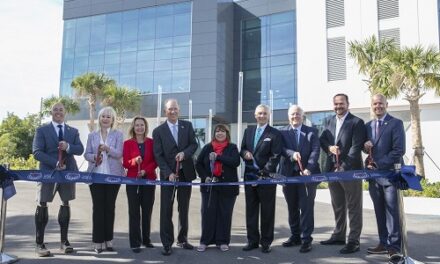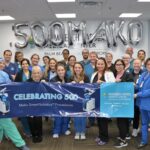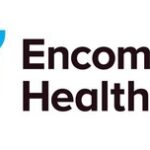By: Dr. Joseph Flagge is the Physician Advisor at North Shore Medical Center
 Every year, the 26th of September marks Mesothelioma Awareness Day, a time dedicated to patients and families affected by mesothelioma. As one of the few non-genetic forms of cancer, the only known cause of mesothelioma is exposure to asbestos. In light of the 17th anniversary of this day, spreading awareness of this disease and asbestos exposure is important in avoiding cases in the future.
Every year, the 26th of September marks Mesothelioma Awareness Day, a time dedicated to patients and families affected by mesothelioma. As one of the few non-genetic forms of cancer, the only known cause of mesothelioma is exposure to asbestos. In light of the 17th anniversary of this day, spreading awareness of this disease and asbestos exposure is important in avoiding cases in the future. What is Mesothelioma?
Mesothelioma is a form of cancer that manifests itself as tumors in the lining of critical organs in the body, most often in the lungs. It is deemed a rare cancer, with 3,000 cases being diagnosed annually. Symptoms of mesothelioma often coincide with more common respiratory illnesses such as pneumonia or the flu, which can prolong an accurate diagnosis and affect treatment options. Common signs of mesothelioma include:
Chest pain or abdominal pain
Shortness of breath
Fluid buildup
Fatigue
Fever and night sweats
Weight loss
Mesothelioma has a long latency period, meaning that individuals usually aren’t aware of any stark health issues until decades after they come into contact with asbestos. Most patients who are diagnosed are 65 or older, and depending on when the cancer is identified, treatment options and life expectancy can vary based on a variety of factors.
What causes Mesothelioma?
Asbestos exposure is the only known cause of mesothelioma. Asbestos is a naturally occurring mineral, and was used heavily in thousands of building products and materials until the 1980s. This material was appealing to use in a variety of ways due to its ability to withstand heat, erosion, and fireproofing durability. It was only until several respiratory diseases started affecting individuals that the connection was made that asbestos was dangerous to humans.
Asbestos exposure causes several different health issues besides mesothelioma. One of the most common ailments deriving from asbestos inhalation is pleural plaques, which is the thickening of the lining of the lungs that can develop after prolonged exposure. Unlike other asbestos-related diseases like mesothelioma or asbestos lung cancer, pleural plaques are considered non-cancerous or benign. However pleural plaques may be an indicator of a higher risk of cancer, and helps doctors monitor early warning signs.
Mesothelioma Day
Where is Asbestos Found?
While it’s now deemed a human carcinogen, asbestos is still found in many older buildings and homes built before the 1980s. Whether renovating a home, or working on a job site, it’s imperative that an area be inspected for asbestos-containing materials (ACMs) before a project begins so that proper safety guides are followed. People who work in any type of industrial and building field are at a much higher risk for asbestos exposure due to the materials they come into contact with on the job. If an individual experiences any sort of respiratory issues and has knowledge of working with asbestos in the past, it is recommended to seek a physician and discuss potential exposure so tests can be conducted.
While asbestos is mainly tied with occupational hazards, it has been found in consumer products as well. In recent years some talc based products, such as baby powder and makeup, have been revealed to contain asbestos. Because talc and asbestos are both naturally occurring minerals that can be found in close proximity to one another during the mining process, cross contamination can easily occur. Due to the nature of talc-containing products, many women and families could come into contact with asbestos. It’s advised to avoid talc-based products altogether to alleviate the risk of exposure.
Prevention and Awareness
While mesothelioma is a debilitating cancer, it can be avoided if individuals are aware of where they can come into contact with asbestos. Creating more conversations around the sources of exposure is the biggest step in preventing mesothelioma and other asbestos-related diseases.
About North Shore Medical Center
North Shore Medical Center is a 337-bed general acute care community hospital located at 1100 NW 95th Street in Miami, Florida. The hospital is part of Tenet Healthcare’s Miami-Dade Group and has been serving the medical and healthcare needs of the North Miami community for more than 65 years. North Shore Medical Center offers a broad range of services, including: 24/7 emergency care, maternity services with a Level III Neonatal Intensive Care Unit, a cardiac catheterization lab, and psychiatric care. The hospital also offers specialized centers including: A Community Cancer Center, Comprehensive Breast Institute, Sleep Disorders Center, Pain Care Center and Comprehensive Stroke Care Center.
North Shore Medical Center has consistently won achievement awards with the American Heart Association’s Get With The Guidelines program. The hospital has earned the 2018 Stroke and Target Stroke Elite Plus Quality Achievement Award and the 2018 Heart Failure Gold Plus Quality Achievement Award. First in Florida Joint Commission Accredited Chest Pain Center.


























